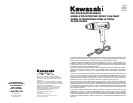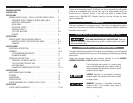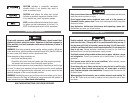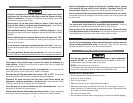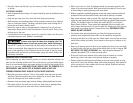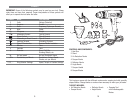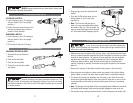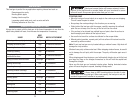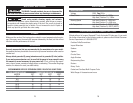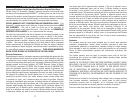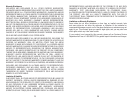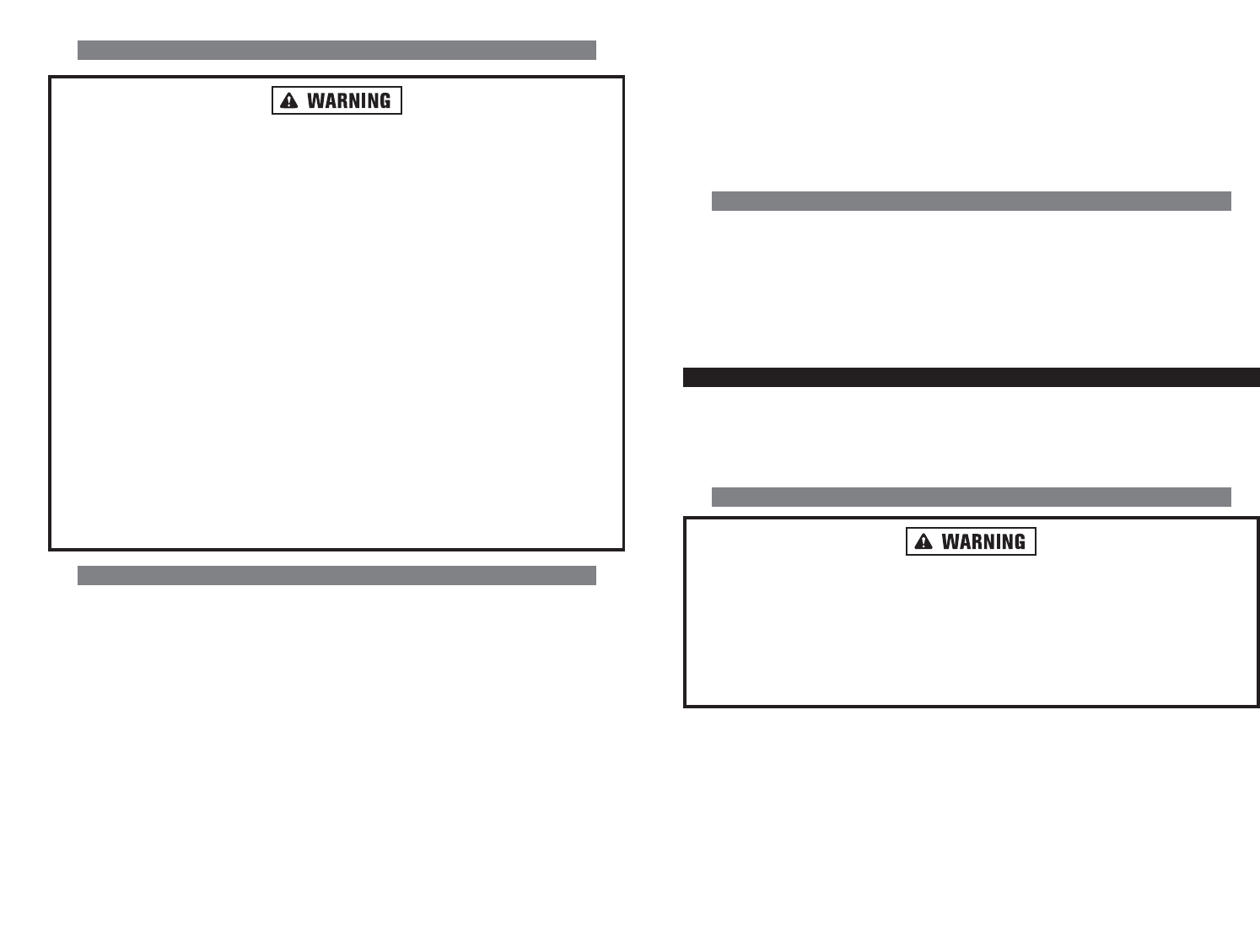
Check for misalignment or binding of moving parts, breakage of parts, and any
other condition that may affect the tool’s operation. If damaged, have the tool
serviced before using. Many accidents are caused by poorly maintained tools.
Use only accessories that are recommended by the manufacturer for your model.
Accessories that may be suitable for one tool may create a risk of injury when used
on another tool.
SERVICE
Tool service must be performed only by qualified repair personnel. Service or
maintenance by unqualified personnel could result in a risk of injury.
When servicing a tool, use only identical replacement parts. Follow instructions
in the Maintenance section of this manual. Use of unauthorized parts or failure to
follow Maintenance Instructions may create a risk of shock or injury.
SPECIFIC SAFETY RULES AND/OR SYMBOLS
Hold tool by insulated gripping surfaces when performing an operation where the
cutting tool may contact hidden wiring. Contact with a “live” wire will also make
exposed metal parts of the tool “live” and shock the operator.
IMPORTANT SAFETY RULES FOR HEAT GUNS
This heat gun produces temperatures high enough to ignite combustible
material. DO NOT use around flammable liquids and gases or easily com-
bustible matter such as leaves, paper or dry grass.
NEVER use this heat gun as a hair dryer.
This heat gun can cause severe burns and/or poisoning from exposure to toxic
fumes if not used properly. Read all safety instructions before use.
GENERAL SAFETY INSTRUCTIONS
• Always disconnect the heat gun when not in use.
• Keep out of reach of children.
• Store in a dry location.
• Make sure the work area is clean and free from clutter.
• Maintain proper footing and balance at all times. Do not overreach. If using a
ladder, make sure it is stable and set up on a sturdy surface. Overreaching while
on a ladder can lead to dangerous falls.
• Stay away from power lines.
• Secure small work pieces before using heat gun to prevent accidental slippage.
PERSONAL SAFETY
Stay alert, watch what you are doing, and use common sense when operat-
ing a power tool. Do not use tool while tired or under the influence of drugs,
alcohol or medication. A moment of inattention while operating power tools
may result in serious personal injury.
Dress properly. Do not wear loose clothing or jewelry. Contain long hair.
Keep your hair, clothing, and gloves away from moving parts. Loose clothes,
jewelry or long hair can be caught in moving parts.
Avoid accidental starting. Be sure switch is off before plugging in. Carrying
tools with your finger on the switch or plugging in tools that have the switch on invites
accidents.
Remove adjusting keys or wrenches before turning the power tool “ON”.
A wrench or a key that is left attached to a rotating part of the power tool may
result in personal injury.
Do not overreach. Keep proper footing and balance at all times. Proper foot-
ing and balance enables better control of the power tool in unexpected situa-
tions.
Use safety equipment. Always wear eye protection. Dust mask, non-skid safe-
ty shoes, hard hat or hearing protection must be used for appropriate conditions.
TOOL USE AND CARE
Use clamps or other practical ways to secure and support the workpiece to a
stable platform. Holding the work by hand or against your body is unstable and
may lead to loss of control.
Do not force tool. Use the correct tool for your application. The correct tool will
do the job better and safer at the rate for which it is designed.
Do not use the tool if the power switch does not turn it “ON” or “OFF”. Any tool that
cannot be controlled with the switch is dangerous and must be repaired.
Disconnect the power cord plug from the power source before making any
adjustments, changing accessories or storing the tool. Such preventive safety
measures reduce the risk of starting the tool accidentally.
Store idle tools out of reach of children and other untrained persons. Tools are
dangerous in the hands of untrained users.
Maintain tools with care. Keep cutting tools sharp and clean. Properly maintained
tools with a sharp cutting edge are less likely to bind and are easier to control.
5



